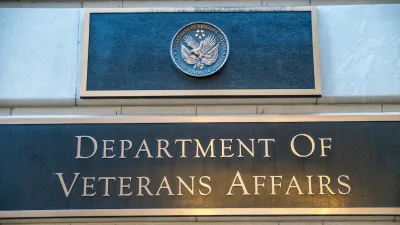Fraud, violence, death, and chaos follow a billion dollar investment in a temporary solution that is proving ineffective.

With over one billion dollars spent since 2018, homeless shelters in California are proving “deadlier than jails,” according to an in-depth investigation by CalMatters, in association with the Associated Press. After the full investigation was released on February 25, AP summarized the seven top findings. According to the AP’s Lauren Helper, California’s temporary shelters have become a “housing purgatory” with dangerous conditions, where people often don’t get the help they need to find long-term housing.
The seven key findings of the report, also authored by Helper, include:
- 1. “Local and state officials bet big on shelters” as the default answer to homelessness, especially after the Supreme Court’s blessing to ban sleeping outside. The number of emergency beds in California has doubled since 2018 and is still only enough to serve a third of the homeless population.
- 2. “Shelters are deadlier than jails” with annual shelter deaths tripling between 2018 and 2024.
- 3. “Inside shelters, chaos frequently breaks loose” with everything from black mold to hired security guards committing sex crimes.
- 4. “Fewer than 1 in 4 people who cycle through shelters move into a permanent home,” opening questions about the efficacy of the model as it relates to the stated goal.
- 5. “Scandals have plagued fast-growing shelter operators” bringing in millions of dollars while undergoing accusations of fraud, violence, sexual misconduct and more.
- 6. “Local and state oversight is failing” with cities and counties ignoring laws that require them to report on problematic conditions.
- 7. “Experts say there are several potential solutions” like direct rent assistance, specialized sober living options, and several other programs intended to permanently end homelessness.
Read AP’s summary, which links to the full investigation, below.
FULL STORY: 7 takeaways from our investigation into California homeless shelters

Alabama: Trump Terminates Settlements for Black Communities Harmed By Raw Sewage
Trump deemed the landmark civil rights agreement “illegal DEI and environmental justice policy.”

Planetizen Federal Action Tracker
A weekly monitor of how Trump’s orders and actions are impacting planners and planning in America.

The 120 Year Old Tiny Home Villages That Sheltered San Francisco’s Earthquake Refugees
More than a century ago, San Francisco mobilized to house thousands of residents displaced by the 1906 earthquake. Could their strategy offer a model for the present?

LA’s Tree Emergency Goes Beyond Vandalism
After a vandal destroyed dozens of downtown LA trees, Mayor Karen Bass vowed to replace them. Days later, she slashed the city’s tree budget.

Sacramento Leads Nation With Bus-Mounted Bike Lane Enforcement Cameras
The city is the first to use its bus-mounted traffic enforcement system to cite drivers who park or drive in bike lanes.

Seattle Voters Approve Social Housing Referendum
Voters approved a corporate tax to fund the city’s housing authority despite an opposition campaign funded by Amazon and Microsoft.
Urban Design for Planners 1: Software Tools
This six-course series explores essential urban design concepts using open source software and equips planners with the tools they need to participate fully in the urban design process.
Planning for Universal Design
Learn the tools for implementing Universal Design in planning regulations.
Ada County Highway District
Clanton & Associates, Inc.
Jessamine County Fiscal Court
Institute for Housing and Urban Development Studies (IHS)
City of Grandview
Harvard GSD Executive Education
Toledo-Lucas County Plan Commissions
Salt Lake City
NYU Wagner Graduate School of Public Service





























